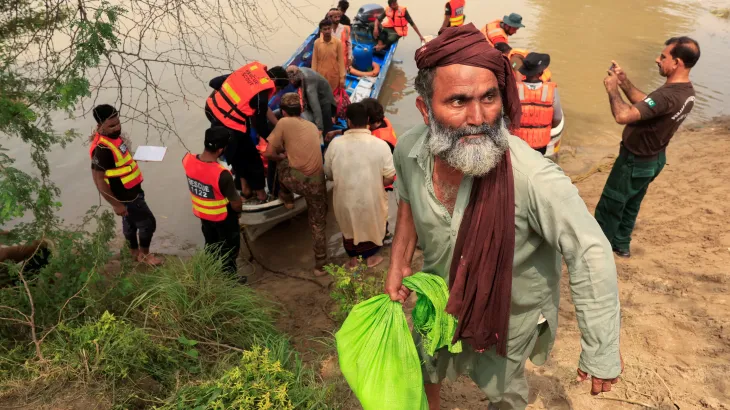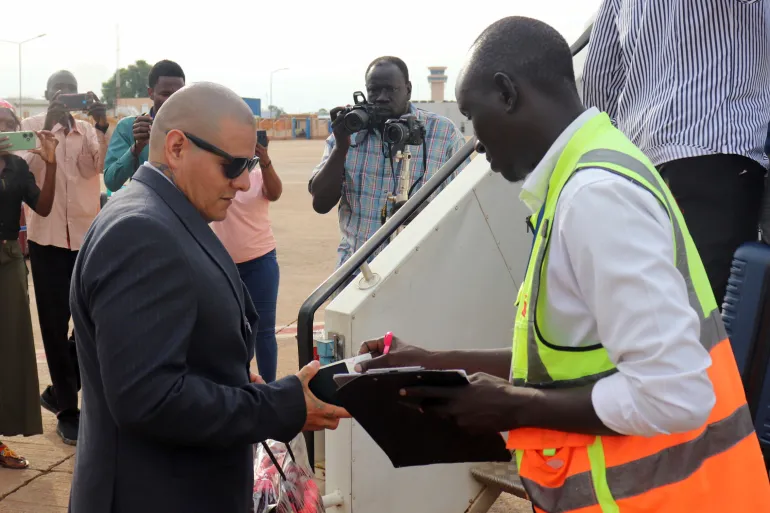ISLAMABAD, PAKISTAN – Catastrophic floods sweeping across Pakistan have left millions of people vulnerable not only to displacement and hunger but also to serious health risks, including cholera outbreaks, experts warn.
Since late June, unusually heavy monsoon rains, followed by floods and landslides, have affected over 6 million people, according to the United Nations. Pakistan’s National Disaster Management Authority (NDMA) reports that more than 1,000 people have died, over 12,500 homes have been destroyed, and 6,500 livestock lost, while crops across multiple provinces have been devastated.
More than 2 million people have been displaced, with many living in temporary shelters or camps where unsanitary conditions and limited access to clean water are widespread.
Health officials warn that waterborne diseases, particularly cholera, could spread rapidly in flood-affected areas. Cholera, a bacterial infection caused by contaminated water or food, can lead to severe diarrhea, vomiting, and dehydration, and may prove fatal within hours if untreated.
Simple interventions such as oral rehydration salts or antibiotics can save lives.
Infectious disease specialist Dr. Shobha Luxmi emphasized the urgent need for relief efforts to prioritize clean water, hygiene, and nutrition.
“Overcrowded shelters without proper toilets or handwashing facilities create a perfect environment for cholera and dysentery,” Luxmi said.
The British Red Cross echoed the concern, highlighting a lack of proper sanitation in emergency camps, which could accelerate the spread of disease.
Pakistan is ranked among the top 10 most climate-vulnerable countries globally, despite contributing less than 1% of global greenhouse gas emissions. Experts say climate change has intensified monsoon rainfall, caused more frequent heatwaves, and accelerated glacier melt in the Himalayas, increasing the likelihood of flooding and other disasters.
Historical context underscores the vulnerability: 2022 floods submerged a third of the country, affected 33 million people, killed over 1,700, and caused $14.8 billion in damages alongside $15.2 billion in economic losses.
Similar disasters followed in 2023 and 2024, with heatwaves and floods claiming hundreds more lives.
Rights group Amnesty International has highlighted Pakistan’s underfunded and overstretched healthcare system, which struggles to serve children and older adults – the most at-risk populations – during extreme weather events.
“Rising temperatures drive ever more intense and unpredictable weather. Children and older people are on the front lines of the climate crisis,” said Laura Mills, Amnesty researcher.
Authorities are calling for urgent international support and effective national planning to address both the immediate health threats and the long-term impacts of climate-related disasters.
As Pakistan continues to grapple with monsoon-related flooding, officials, aid agencies, and climate experts stress that immediate intervention is crucial to prevent a major public health catastrophe.



